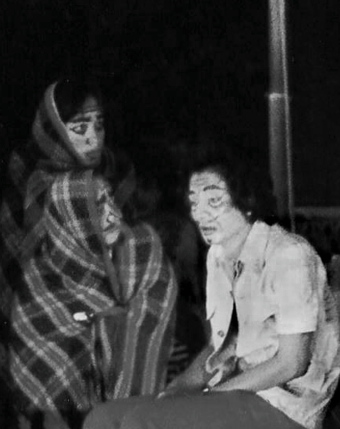by MAX LANE
 Rendra performing. PHOTO/Burung Merak Press/Inside Indonesia
Rendra performing. PHOTO/Burung Merak Press/Inside Indonesia
In all countries, the ruling class determines what version of history enters the minds of the population, and in Indonesia this phenomenon is particularly striking. This does not just apply to the false memories implanted in society about the events of 1965; it applies to the whole of the country’s historical experience. As a result, almost nobody among the current generation knows what a transformative period the 1970s was.
It was in the 1970s that the basis for Suharto’s dictatorial system was established but also when people like Rendra laid the basis for the emergence in the 1990s of a radical resistance to that dictatorship. As a result of political censorship, and school education that distorted history and did not teach Indonesian literature as a subject, knowledge of Rendra’s 1970s poems and plays has never become a mass phenomenon, even if arrests, lyrics for pop songs and movies have long made his image as a flamboyant dissident the subject of front page news.
…
They live in shanties without windows
and harvest for landlords
who live in huge palaces.
Their sweat falls like gold
for the carpetbaggers who run cigar factories in Europe.
When they demand their share of the profits,
the economists straighten their ties,
and send them condoms.
Inside Indonesia for more
